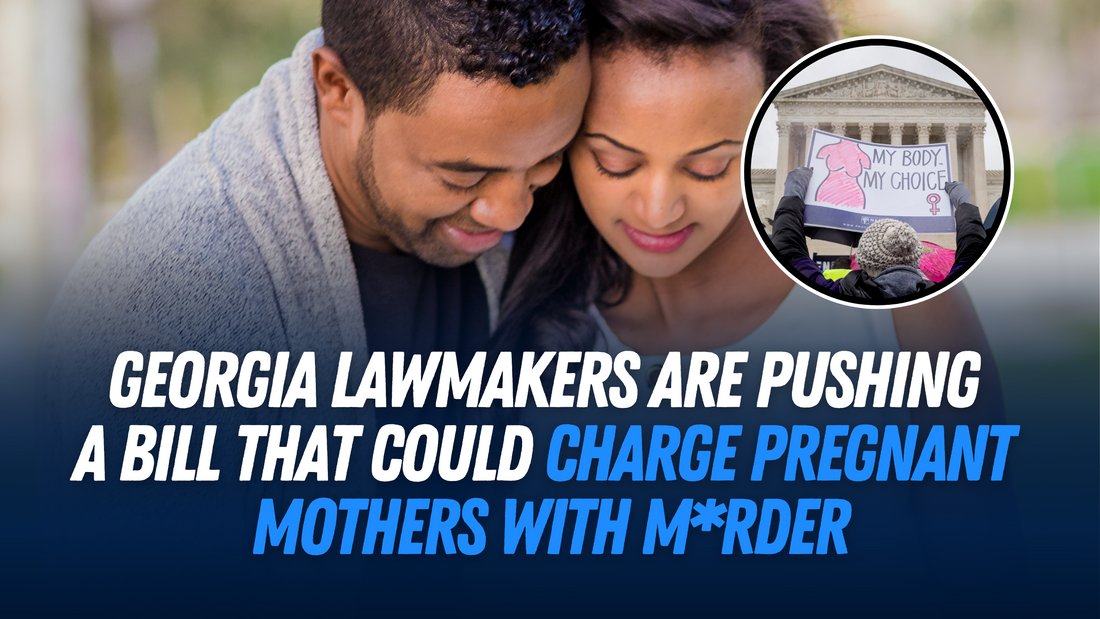
Georgia lawmakers are pushing a bill that could charge pregnant mothers with m*rder
Share
Georgia lawmakers have introduced a new bill called House Bill 441, also known as the “Georgia Prenatal Equal Protection Act.” This bill aims to change current abortion laws and includes a complete ban on abortions with very few exceptions. If passed, this bill could lead to severe legal penalties for both mothers seeking abortions and the doctors who provide them, including the possibility of capital punishment.
The bill was proposed in February and had a hearing on March 26, but it is still in the House Judiciary Non-Civil Committee, and no vote has been taken yet. If House Bill 441 becomes law, Georgia will join only a handful of states with a total ban on abortions.
One supporter of the bill, Rep. Emory Dunahoo, stated, “If we truly believe that a fetus is a person made in the image of God, then the laws that protect born humans should also protect those who are not yet born.” However, some opponents, like former anti-abortion advocate Elizabeth Edmonds, argue that this bill is harmful and lacks compassion, especially for women who are facing difficult situations.
The bill could also have a big impact on healthcare and the economy in Georgia. Here are the main points of House Bill 441:
- Criminalizing Abortions: The bill treats abortion as murder, meaning those who undergo or perform abortions could face serious criminal charges.
- Legal Rights for Fetuses: It recognizes embryos as "human beings" and provides them with legal protection under homicide laws from the moment of fertilization.
- Defenses for Mothers: Mothers charged with prenatal homicide could argue that they were forced into having an abortion.
- Attorney General's Role: The Georgia Attorney General could prosecute cases related to prenatal homicide if local prosecutors do not take action.
- Removing Exceptions: The bill eliminates exceptions that currently allow for assault or battery against unborn children in certain cases.
- Parental Rights: Parents would have the right to pursue legal claims for the loss of an unborn child from the moment of fertilization.
Additionally, the bill aims to ensure that individuals accused of prenatal homicide receive due process and prevents retroactive prosecutions for abortions before the bill becomes law.
Impact on Georgia's Healthcare System
Experts from the Georgia Budget and Policy Institute warn that criminalizing abortion could lead to increased healthcare costs in the state. Georgia ranks low in women's healthcare and has high maternal mortality rates. If this bill passes, here are some potential consequences:
- Increased Healthcare Costs: Higher insurance premiums and medication costs could affect everyone.
- Loss of Healthcare Providers: Fear of prosecution could drive doctors out of Georgia, worsening the existing shortage of medical professionals.
- Worsening Maternal Health: Restricted access to abortions could lead to poorer health outcomes for mothers, especially among vulnerable groups.
- Threat to IVF: The bill might impact fertility treatments by making it illegal to dispose of non-viable embryos.
- Economic Impact: States with abortion bans often experience lower participation in the workforce among women, which could lead to significant economic losses for Georgia.
- Higher Legal Costs: Prosecuting women for murder related to abortions will require substantial resources from law enforcement and the judicial system.
- More Public Assistance: Forced pregnancies may lead to a rise in low-income families seeking government assistance.
- Lower State GDP: Total abortion bans have been linked to declines in the gross domestic product.
Penalties Under the Bill
If House Bill 441 becomes law, it will impose strict penalties on anyone involved in abortion activities:
- For Pregnant Individuals: They could be charged with “prenatal homicide,” facing penalties similar to murder.
- For Healthcare Providers: Doctors could face imprisonment, loss of their medical licenses, and even the death penalty.
- For Others Helping: Anyone assisting in an abortion could also face criminal charges, depending on their involvement.
The Georgia Attorney General would have the power to take legal action if local prosecutors do not act. The bill encourages reporting suspected violations of the law, which could include reporting doctors, pregnant women, or anyone else involved in abortions.
The main sponsors of this bill are Republican Representatives Emory Dunahoo, Mike Cameron, Charlice Byrd, Danny Mathis, Trey Kelley, and Martin Momtahan. During the March 26 hearing, both supporters and opponents shared their views, but the committee did not vote on the bill. Since it did not advance before a deadline, it will remain open for reconsideration in the next legislative session in early 2026.
